What temperature should pizza dough be stored at
Home » Oven Temp » What temperature should pizza dough be stored atWhat temperature should pizza dough be stored at
What Temperature Should Pizza Dough Be Stored At. Storing Pizza Dough on the Counter. Remove dough from fridge divide put a bit of dough in. Mix poolish Morning of day 2. This article is focused on how temperature should be matched to the browning agents added to a dough recipe.
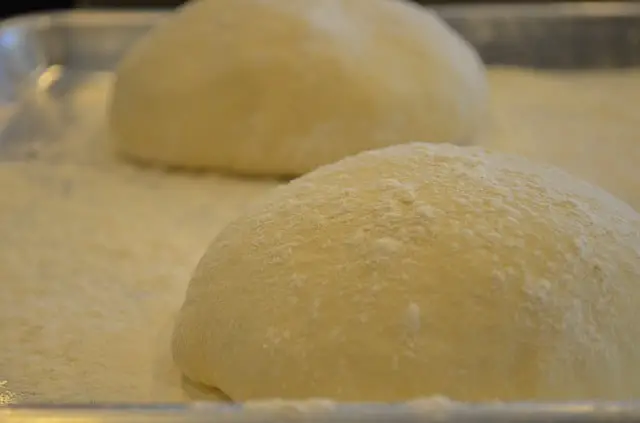 Pizza Dough Rise Times 1 To 72 Hours What Works Best Cooking Chops From cookingchops.com
Pizza Dough Rise Times 1 To 72 Hours What Works Best Cooking Chops From cookingchops.com
Wet hands with warm water 2. During fermentation you usually store pizza dough in room temperature on the counter. Unfortunately the vast locker of all mankinds knowledge the internet makes it easy to blur all of this meticulous specialization. Storing It In The Fridge. However there is the option to cold proof your dough in the refrigerator and in this instance you would be looking at making the temperature much lower below 10º. For me and my starter this is usually between 75F 24C and 80F 26Cread on for how I maintain these temperatures in the winter.
Some think that you need to bring your commercial pizza dough up to room temperature while others think that its best to place it in the fridge to defrost and then pull out to once again bring to room temperature.
My pizza paradigm is. The key here is to control the finished mixed dough temperature to 80 F to 85 F then take the dough directly to the bench for scaling and rounding balling. For me and my starter this is usually between 75F 24C and 80F 26Cread on for how I maintain these temperatures in the winter. Any temperature between 0 and -3 degrees Fahrenheit will be cold enough to keep dough cold enough for it to stay safe. But if you want to be fancy cold-fermenting the dough or make a Neapolitan-style pizza you want to lower the temperature. The difference is the amount of yeast.
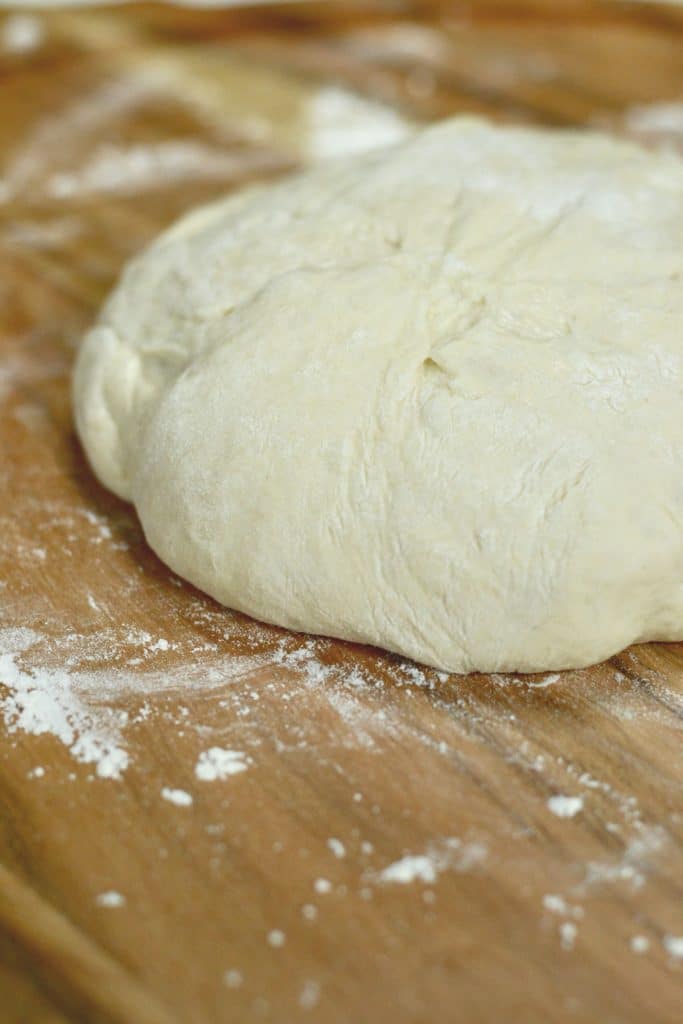 Source: goodinthesimple.com
Source: goodinthesimple.com
Then you can take it to the make table for baking and its propensity to. Turn off faucet 7. Evening of day 1. Allow dough balls to warm AT room temperature for about 15 hours before shaping dressing and baking. Some think that you need to bring your commercial pizza dough up to room temperature while others think that its best to place it in the fridge to defrost and then pull out to once again bring to room temperature.
 Source: pizzacraft.com
Source: pizzacraft.com
The key here is to control the finished mixed dough temperature to 80 F to 85 F then take the dough directly to the bench for scaling and rounding balling. This post focuses on the tips tricks and tools I employ throughout the year to ensure my starter and dough are at my desired temperature for a formula. You may get all the ingredients right but if the temperature is below 75 degrees F the pizza dough will not rise. Although dry yeast can live for years when kept at the right room temperature you should test it before use. Most pizza recipes will not define at which temperature you should be prrof the dough.
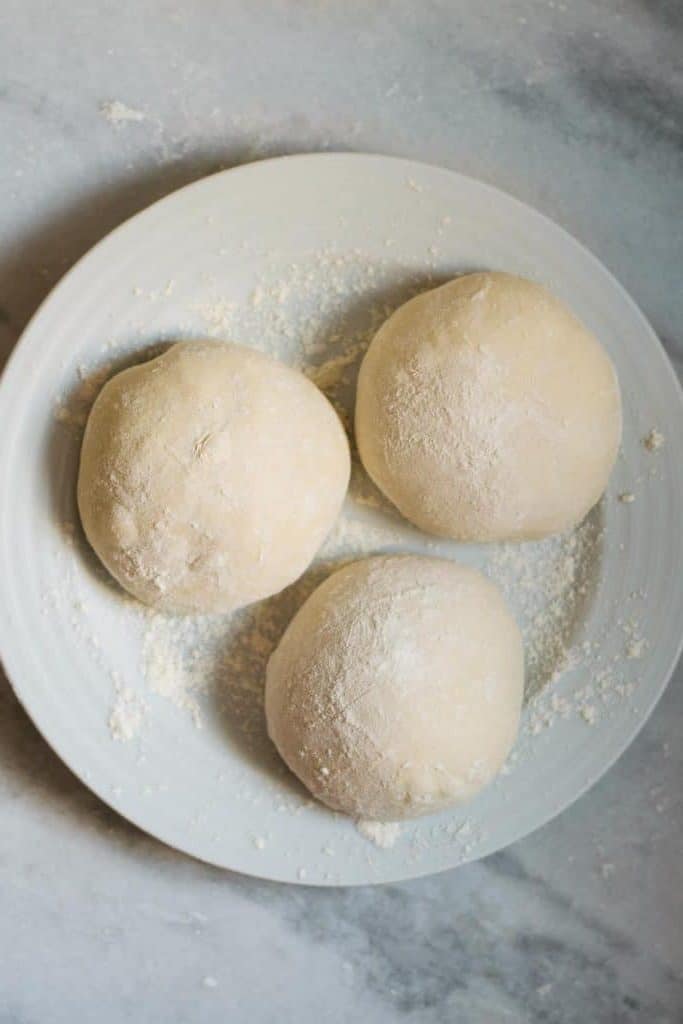 Source: thecuriouschickpea.com
Source: thecuriouschickpea.com
So what is the perfect temperature for storing dough. Producing pizza dough that can be stored in the cooler and produce essentially the same quality product from days one through three is where the challenge lies. Allow dough balls to warm AT room temperature for about 15 hours before shaping dressing and baking. The other area you should pay close attention to is the age of the yeast. Once you bring the dough out of the cooler keep it covered to prevent drying and let it temper at room temperature for upwards of 2½ hours or until the dough ball temperature reaches 50F.
 Source: alexandracooks.com
Source: alexandracooks.com
Remove dough from fridge divide put a bit of dough in. If your dough was just left at room temperature on your kitchen counter for example the yeast would continue to expand the dough causing the dough to over-ferment and giving it a bad taste. However there is the option to cold proof your dough in the refrigerator and in this instance you would be looking at making the temperature much lower below 10º. If you dont intend to use it in a few days then it is best to freeze the dough for long-term storage. Then you can take it to the make table for baking and its propensity to.
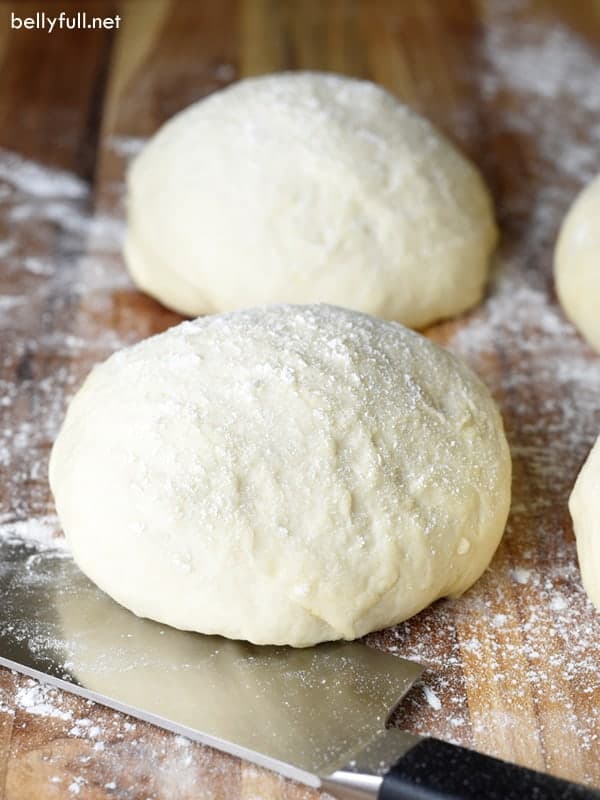 Source: bellyfull.net
Source: bellyfull.net
Mix dough bulk ferment at room temp for 12 hours with folds and then refrigerate Day 3 23 hours before eating. When left at room temperature. Once you bring the dough out of the cooler keep it covered to prevent drying and let it temper at room temperature for upwards of 2½ hours or until the dough ball temperature reaches 50F. If your dough was just left at room temperature on your kitchen counter for example the yeast would continue to expand the dough causing the dough to over-ferment and giving it a bad taste. 4 If you pre-make the dough skins and store them in the cooler be sure to allow them time to begin warming at room temperature about 20 minutes before using them.
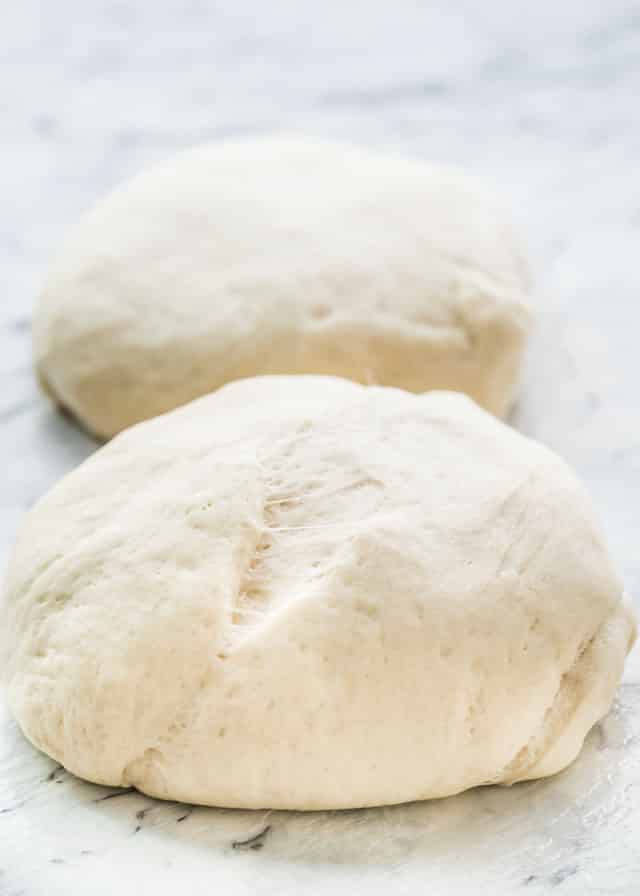 Source: jocooks.com
Source: jocooks.com
You may get all the ingredients right but if the temperature is below 75 degrees F the pizza dough will not rise. Neapolitan pizza dough on the other hand is fermented in room temperature for 8-12 hours. Mix dough bulk ferment at room temp for 12 hours with folds and then refrigerate Day 3 23 hours before eating. But not so cold that it forms ice crystals or freezer burn on it. 3 Most thin crust pizzas should be docked to control bubbling.
 Source: pmq.com
Source: pmq.com
This article is focused on how temperature should be matched to the browning agents added to a dough recipe. Some think that you can even take dough right from the freezer and put it into your oven. A standard pizza dough is often left 1-2 hours. Mix poolish Morning of day 2. You may get all the ingredients right but if the temperature is below 75 degrees F the pizza dough will not rise.
 Source: wikihow.com
Source: wikihow.com
Proofing Pizza Dough at Room Temperature. Wash for 20 seconds 4. During fermentation you usually store pizza dough in room temperature on the counter. Storing Pizza Dough on the Counter. For me and my starter this is usually between 75F 24C and 80F 26Cread on for how I maintain these temperatures in the winter.
 Source: huffpost.com
Source: huffpost.com
Most pizza recipes will not define at which temperature you should be prrof the dough. Any temperature between 0 and -3 degrees Fahrenheit will be cold enough to keep dough cold enough for it to stay safe. Evening of day 1. Most pizza recipes will not define at which temperature you should be prrof the dough. Although dry yeast can live for years when kept at the right room temperature you should test it before use.
 Source: cookingchops.com
Source: cookingchops.com
For me and my starter this is usually between 75F 24C and 80F 26Cread on for how I maintain these temperatures in the winter. Unfortunately the vast locker of all mankinds knowledge the internet makes it easy to blur all of this meticulous specialization. This post focuses on the tips tricks and tools I employ throughout the year to ensure my starter and dough are at my desired temperature for a formula. So what is the perfect temperature for storing dough. Neapolitan pizza dough on the other hand is fermented in room temperature for 8-12 hours.
 Source: finecooking.com
Source: finecooking.com
The difference is the amount of yeast. Most pizza recipes will not define at which temperature you should be prrof the dough. This post focuses on the tips tricks and tools I employ throughout the year to ensure my starter and dough are at my desired temperature for a formula. Most experts agree that before making pizza your dough should be proofed in a kitchen that sits comfortably at around 23ºc or 75ºf. Rinse with warm water 5.
 Source: crustkingdom.com
Source: crustkingdom.com
Although dry yeast can live for years when kept at the right room temperature you should test it before use. Wet hands with warm water 2. Rinse with warm water 5. This post focuses on the tips tricks and tools I employ throughout the year to ensure my starter and dough are at my desired temperature for a formula. But not so cold that it forms ice crystals or freezer burn on it.
 Source: huffpost.com
Source: huffpost.com
Wet hands with warm water 2. Then you can take it to the make table for baking and its propensity to. Evening of day 1. Some think that you need to bring your commercial pizza dough up to room temperature while others think that its best to place it in the fridge to defrost and then pull out to once again bring to room temperature. This is a common problem in winter.
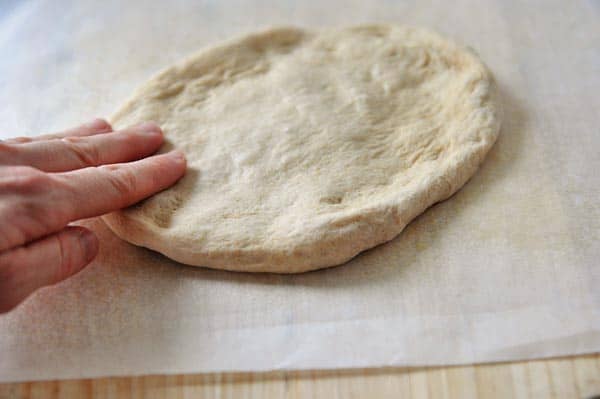 Source: melskitchencafe.com
Source: melskitchencafe.com
So what is the perfect temperature for storing dough. Producing pizza dough that can be stored in the cooler and produce essentially the same quality product from days one through three is where the challenge lies. The difference is the amount of yeast. If you dont intend to use it in a few days then it is best to freeze the dough for long-term storage. This article is focused on how temperature should be matched to the browning agents added to a dough recipe.
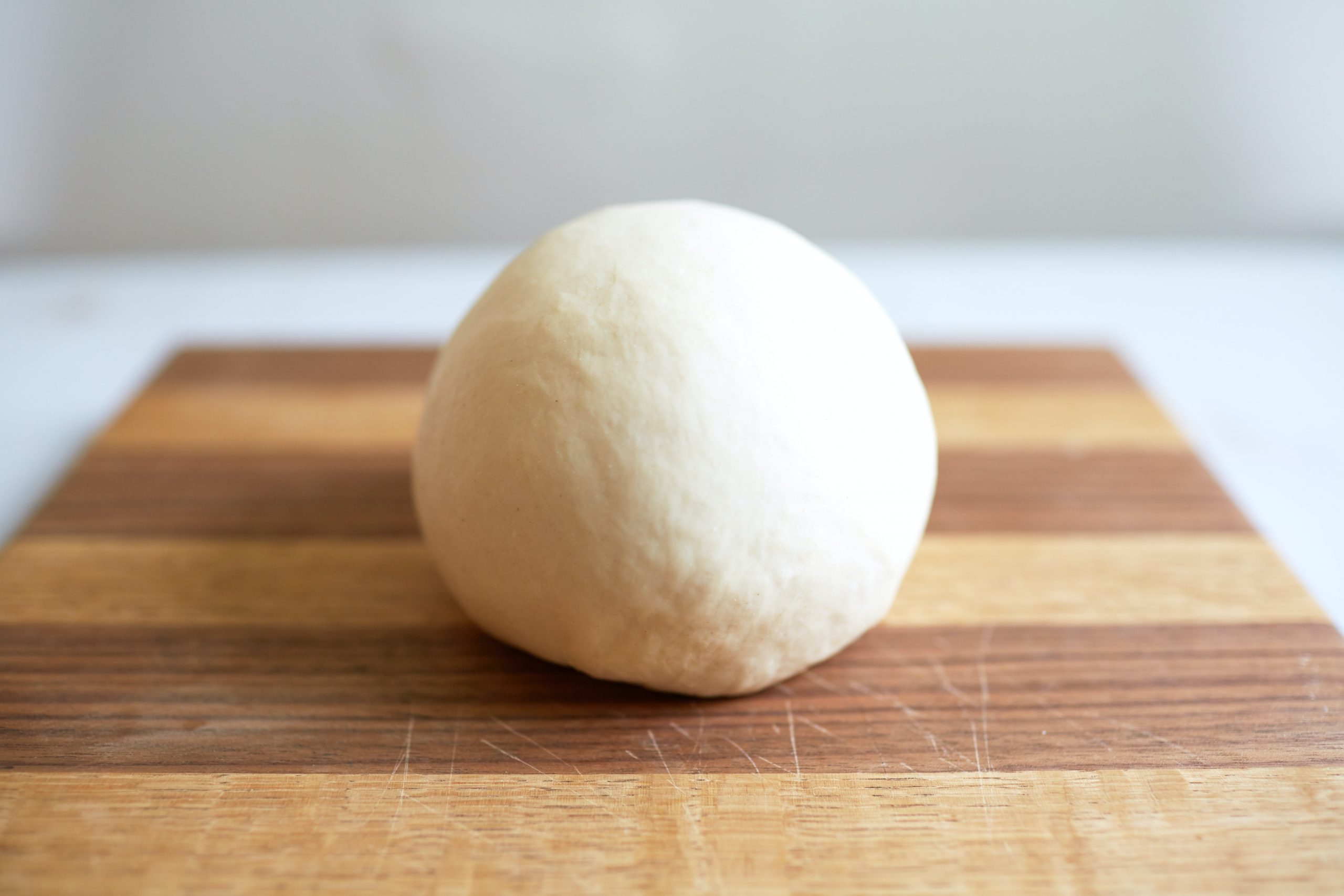 Source: thepizzaheaven.com
Source: thepizzaheaven.com
If your dough was just left at room temperature on your kitchen counter for example the yeast would continue to expand the dough causing the dough to over-ferment and giving it a bad taste. But if you want to be fancy cold-fermenting the dough or make a Neapolitan-style pizza you want to lower the temperature. Once you bring the dough out of the cooler keep it covered to prevent drying and let it temper at room temperature for upwards of 2½ hours or until the dough ball temperature reaches 50F. But not so cold that it forms ice crystals or freezer burn on it. Allow dough balls to warm AT room temperature for about 15 hours before shaping dressing and baking.
If you find this site serviceableness, please support us by sharing this posts to your own social media accounts like Facebook, Instagram and so on or you can also bookmark this blog page with the title what temperature should pizza dough be stored at by using Ctrl + D for devices a laptop with a Windows operating system or Command + D for laptops with an Apple operating system. If you use a smartphone, you can also use the drawer menu of the browser you are using. Whether it’s a Windows, Mac, iOS or Android operating system, you will still be able to bookmark this website.
Category
Related By Category
- What temperature do you cook pork loin ribs
- What temp should i cook brisket too
- What temperature should you cook pork at
- What temperature do you bake brisket at
- What temperature should you cook pork chops at
- What temperature do you cook chicken breast on a traeger
- What temp to cook boneless chicken breast on grill
- What temperature to slow cook chicken thighs
- What temp do i bake chicken breast at
- What temp do you cook pork chops too